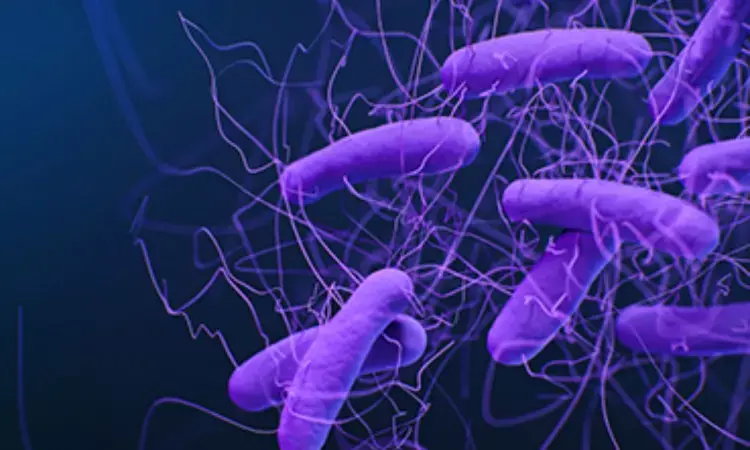- Home
- Medical news & Guidelines
- Anesthesiology
- Cardiology and CTVS
- Critical Care
- Dentistry
- Dermatology
- Diabetes and Endocrinology
- ENT
- Gastroenterology
- Medicine
- Nephrology
- Neurology
- Obstretics-Gynaecology
- Oncology
- Ophthalmology
- Orthopaedics
- Pediatrics-Neonatology
- Psychiatry
- Pulmonology
- Radiology
- Surgery
- Urology
- Laboratory Medicine
- Diet
- Nursing
- Paramedical
- Physiotherapy
- Health news
- Fact Check
- Bone Health Fact Check
- Brain Health Fact Check
- Cancer Related Fact Check
- Child Care Fact Check
- Dental and oral health fact check
- Diabetes and metabolic health fact check
- Diet and Nutrition Fact Check
- Eye and ENT Care Fact Check
- Fitness fact check
- Gut health fact check
- Heart health fact check
- Kidney health fact check
- Medical education fact check
- Men's health fact check
- Respiratory fact check
- Skin and hair care fact check
- Vaccine and Immunization fact check
- Women's health fact check
- AYUSH
- State News
- Andaman and Nicobar Islands
- Andhra Pradesh
- Arunachal Pradesh
- Assam
- Bihar
- Chandigarh
- Chattisgarh
- Dadra and Nagar Haveli
- Daman and Diu
- Delhi
- Goa
- Gujarat
- Haryana
- Himachal Pradesh
- Jammu & Kashmir
- Jharkhand
- Karnataka
- Kerala
- Ladakh
- Lakshadweep
- Madhya Pradesh
- Maharashtra
- Manipur
- Meghalaya
- Mizoram
- Nagaland
- Odisha
- Puducherry
- Punjab
- Rajasthan
- Sikkim
- Tamil Nadu
- Telangana
- Tripura
- Uttar Pradesh
- Uttrakhand
- West Bengal
- Medical Education
- Industry
Combined use of antibiotics and PPIs tied to increased risk of Clostridioides difficile infection

Sweden: A recent study published in the Journal of Antimicrobial Chemotherapy revealed an increased risk of Clostridioides difficile infection (CDI) with recent and less recent use of proton pump inhibitors (PPIs) and systemic antibiotics, particularly in combination. Proton pump inhibitors (PPIs) are the drugs often used to relieve acid reflux.
The use of PPIs and antibiotics each has been independently associated with an increased CDI risk in several studies, few studies have examined the potential effects on CDI risk, when used in combination. Considering this, Nele Brusselaers, Tumour and Cell Biology, Karolinska Institutet, Stockholm, Sweden, and colleagues aimed to assess the short- and long-term effects of antibiotics and PPIs on CDI risk and recurrence.
For this purpose, they conducted a population-based study comprising 43 152 patients with CDI diagnosis in Sweden (2006–2019), and 355 172 matched population controls without CDI. The impact of PPIs and antibiotics on CDI risk and recurrence was explored for recent (0–30 days) and preceding (31–180 days) use before their first CDI diagnosis, using multivariable conditional logistic regression presented as odds ratios (ORs) after adjustment for comorbidities, demographics, and other drugs.
The study led to the following findings:
- Compared to controls, the combined effect of recent PPIs and antibiotics [ORAB+PPI = 17.51] on CDI risk was stronger than the individual effects [ORAB = 15.37; ORPPI = 2.65]. Results were less pronounced for exposure during the preceding months.
- Dose–response analyses showed increasing exposure correlated with CDI risk [recent use: ORAB = 6.32; ORPPI = 1.65 per prescription increase].
- Compared to individuals without recurrence (rCDI), recent [ORAB = 1.30] and preceding [ORAB = 1.23; ORPPI = 1.12] use also affected the risk of recurrence yet without significant interaction between both.
- Recent macrolides/lincosamides/streptogramins; other antibacterials, including nitroimidazole derivates; non-penicillin beta-lactams and quinolones showed the strongest association with CDI risk and recurrence, specifically for recent use.
- PPI use, both recent and preceding, further increased the CDI risk associated with almost all antibiotic classes.
"Our findings stress the need to reconsider the risk-benefit of both PPIs and antibiotics, which are both still over-prescribed," the researchers wrote. In addition, they also stressed the importance of investigating the impact of these dispensed prescriptions on the odds of a recurrent episode, since antibiotics are also used for CDI treatment and the long-term safety and efficacy of the treatment.
"Exposure to systemic antibiotics and PPI use were associated with CDI risk and recurrence, particularly when combined," they concluded.
Reference:
Moreels, N., Boven, A., Gressani, O., Andersson, F. L., Vlieghe, E., Callens, S., Engstrand, L., Simin, J., & Brusselaers, N. The combined effect of systemic antibiotics and proton pump inhibitors on Clostridioides difficile infection and recurrence. Journal of Antimicrobial Chemotherapy. https://doi.org/10.1093/jac/dkae012
Dr Kamal Kant Kohli-MBBS, DTCD- a chest specialist with more than 30 years of practice and a flair for writing clinical articles, Dr Kamal Kant Kohli joined Medical Dialogues as a Chief Editor of Medical News. Besides writing articles, as an editor, he proofreads and verifies all the medical content published on Medical Dialogues including those coming from journals, studies,medical conferences,guidelines etc. Email: drkohli@medicaldialogues.in. Contact no. 011-43720751


